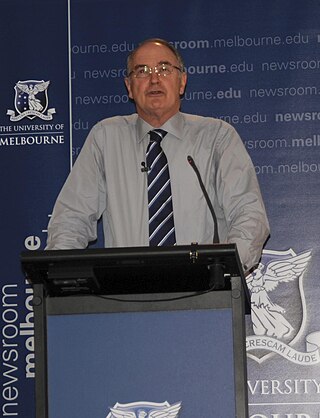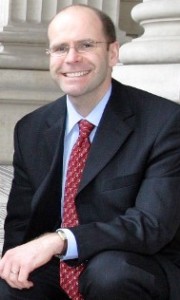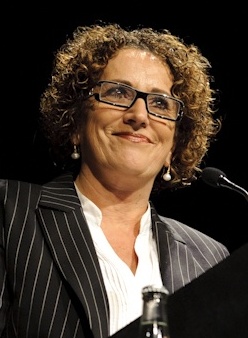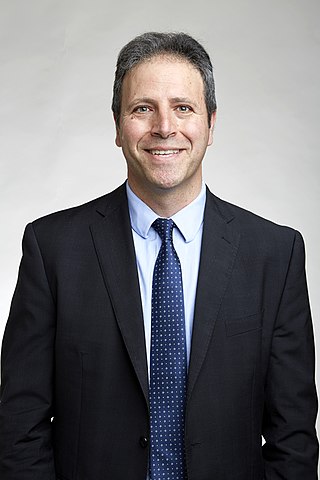Related Research Articles
The University of New South Wales (UNSW), also known as UNSW Sydney, is a public research university based in Sydney, New South Wales, Australia. It is one of the founding members of Group of Eight, a coalition of Australian research-intensive universities.

The University of Melbourne is a public research university located in Melbourne, Australia. Founded in 1853, it is Australia's second oldest university and the oldest in Victoria. Its main campus is located in Parkville, an inner suburb north of Melbourne's central business district, with several other campuses located across Victoria.

The Group of Eight (Go8) comprises Australia's most research intensive universities - the University of Adelaide, the Australian National University, the University of Melbourne, Monash University, UNSW Sydney, the University of Queensland, the University of Sydney and the University of Western Australia. It is often compared to the Russell Group of pioneering research universities in the United Kingdom.

Glyn Conrad Davis AC is an Australian academic who is the Secretary of the Department of Prime Minister and Cabinet, appointed by Prime Minister Anthony Albanese on 30 May 2022, and commenced on 6 June 2022.
John Vance Langmore is an Australian academic and politician. He was a member of the Australian House of Representatives from 1984 to 1996.
Graeme Turner is an Australian professor of cultural studies and an Emeritus Professor at the University of Queensland. During his institutional academic career he was a Federation Fellow, a President of the Australian Academy of the Humanities, founding Director of the Centre for Critical and Cultural Studies at the University of Queensland, and Convenor of the ARC Cultural Research Network.

Ross Gregory Garnaut is an Australian economist, currently serving as a vice-chancellor's fellow and professorial fellow of economics at the University of Melbourne. He is the author of numerous publications in scholarly journals on international economics, public finance and economic development, particularly in relation to East Asia and the Southwest Pacific.
Sarah Maddison CF is an Australian author and political scientist.

Stephen John Duckett is a health economist and think-tanker who has occupied many leadership roles in health services in both Australia and Canada, including as Secretary of the Commonwealth Department of Health and Ageing. He is current health program director at the Grattan Institute, an Australian public policy think tank, Emeritus Professor of Health Policy at La Trobe University, and Chairperson of South Australia's Health Performance Council.

George John Williams is an Australian academic specialising in Australian constitutional law and the Deputy Vice-Chancellor of Planning and Assurance at the University of New South Wales. He was formerly the Dean of the Law Faculty.
The Australian Institute of Family Studies (AIFS) is an Australian Government statutory agency in the Department of Social Services. It is located in Melbourne, Victoria, Australia. Its role is to conduct research and communicate findings that affect family wellbeing to policy makers, service providers and the broader community.

Kathleen Maltzahn is an Australian author, academic and anti-sex work activist. She is a former councillor for the City of Yarra and was the Australian Greens Victoria candidate for the state seat of Richmond in the 2010, 2014 and 2018 Victorian elections.

Douglas "Doug" James Hilton is an Australian molecular biologist. He is the Director of the Walter and Eliza Hall Institute of Medical Research in Melbourne, Australia and Head of the Department of Medical Biology at the University of Melbourne. His research has focused on cytokines, signal transduction pathways and the regulation of blood cell formation (hematopoiesis). Since 2014, Hilton has been the President of the Association of the Australian Medical Research Institutes (AAMRI).

Susan Marie "Sue" Alberti is an Australian businesswoman, philanthropist and former Vice President of the Western Bulldogs Football Club.

Frances Separovic is a biophysical chemist, Distinguished Professor Emeritus of Chemistry, Deputy Director of the Bio21 Institute and former Head of the School of Chemistry at the University of Melbourne, where she taught physical chemistry and graduate students in her field. She is credited with developing a technique which utilises nuclear magnetic resonance spectroscopy (NMR) to study peptides in aligned lipid bilayers, and has applications in the study of the structure of membrane proteins and their effects on the membrane. Her current research concerns 'the structure and interactions of amyloid peptides from Alzheimer's disease, pore-forming toxins and antibiotic peptides in model biological membranes'.

Helen Veronica Szoke is the former chief executive of Oxfam Australia, and a commentator and advocate on issues of human rights, poverty, inequality, gender and race discrimination. Throughout her career, she has held leadership roles across the health sector, human rights and public policy, and international development sector.
Saman Halgamuge was educated in Germany and Sri Lanka and he is currently a Professor of University of Melbourne, Australia. He is an elected Fellow of Institute of Electrical and Electronics Engineers, USA. He is a highly cited expert in his field and listed as one of the top 2% cited experts for AI and Image Processing in the Stanford University Database published in 2020. His most-cited paper being Self-organizing hierarchical particle swarm optimizer with time-varying acceleration coefficients, with over 3300 citations, according to GoogleScholar. He is a Distinguished Speaker/Lecturer on Computational Intelligence appointed by IEEE. He has supervised 45 PhD scholars to completion and delivered over 50 keynotes at International and national conferences.

Francesco Caruso is Melbourne Laureate Professor and National Health and Medical Research Council (NHMRC) Senior Principal Research Fellow in the School of Chemical and Biomolecular Engineering at the University of Melbourne, Australia. Caruso is deputy director of the Australian Research Council (ARC) Centre of Excellence in Convergent Bio-Nanoscience and Technology.

Upulie Pabasarie Divisekera is an Australian molecular biologist and science communicator. She is a doctoral student at Monash University and is the co-founder of Real Scientists, an outreach program that uses performance and writing to communicate science. She has written for The Sydney Morning Herald, Crikey and The Guardian.
References
- ↑ Contesting the Australian way : states, markets and civil society / edited by Paul Smyth and Bettina... | National Library of Australia. Catalogue.nla.gov.au. 1998. Retrieved 4 May 2022.
- 1 2 3 "Research events - Brotherhood of St Laurence". Archived from the original on 9 March 2015. Retrieved 7 March 2015.
- ↑ "Home — School of Social and Political Sciences | Faculty of Arts". AU: Ssps.unimelb.edu.au. 3 May 2018. Retrieved 4 May 2022.
- 1 2 "Professor of Social Policy appointed : News : The University of Melbourne". Archived from the original on 2 April 2015. Retrieved 7 March 2015.
- ↑ "Archived copy" (PDF). Archived from the original (PDF) on 22 March 2015. Retrieved 8 March 2015.
{{cite web}}: CS1 maint: archived copy as title (link) - ↑ "Foenander Lectures 1986-2016". AU: Fbe.unimelb.edu.au. 8 October 2021. Retrieved 4 May 2022.
- ↑ "Archived copy" (PDF). Archived from the original (PDF) on 26 March 2015. Retrieved 7 March 2015.
{{cite web}}: CS1 maint: archived copy as title (link) - ↑ "PROF Paul SMYTH - the University of Melbourne". Archived from the original on 30 March 2015. Retrieved 7 March 2015.
- ↑ "Australian Institute of Family Studies Advisory Council | AusGovBoards". Archived from the original on 1 March 2015. Retrieved 7 March 2015.
- ↑ "Expert Advisory Committee | Australian Institute of Family Studies". Aifs.gov.au. Retrieved 4 May 2022.
- ↑ "Family Matters No 86, 2011 - Publications - Australian Institute of Family Studies". Archived from the original on 22 March 2015. Retrieved 7 March 2015.
- ↑ Members unisa.edu.au April 2013
- ↑ "Council - Australian Catholic Social Justice Council". Archived from the original on 27 February 2015. Retrieved 7 March 2015.
- ↑ "Program Reference Groups | Grattan Institute". Archived from the original on 4 March 2015. Retrieved 7 March 2015.
- ↑ "Archived copy" (PDF). Archived from the original (PDF) on 9 March 2015. Retrieved 7 March 2015.
{{cite web}}: CS1 maint: archived copy as title (link) - ↑ "Editorial Team". Archived from the original on 2 April 2015. Retrieved 7 March 2015.
- ↑ Annual Review20082009 volunteeringaustralia.org
- ↑ The Australian [ dead link ]
- ↑ "Searching for Bill Shorten's promised year of ALP ideas". 21 February 2015.
- ↑ "Paul Smyth - ABC News". Australian Broadcasting Corporation .
- ↑ "Paul Smyth – The Conversation". Theconversation.com. 9 May 2013. Retrieved 4 May 2022.
- ↑ "'Big society': Abbott takes his lead from the Brits". Crikey.com.au. 2 July 2012. Retrieved 4 May 2022.
- ↑ "Eureka Street". 13 April 2008.
- ↑ "Academic Warns of Australia's Disappearing NFP Sector".
- ↑ "Social Policy Whisperer | the Power to Persuade". Archived from the original on 10 March 2015. Retrieved 7 March 2015.